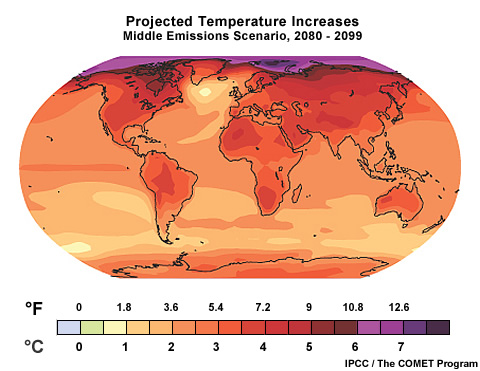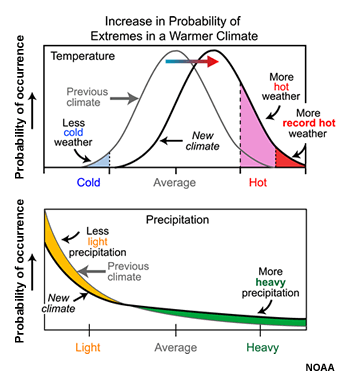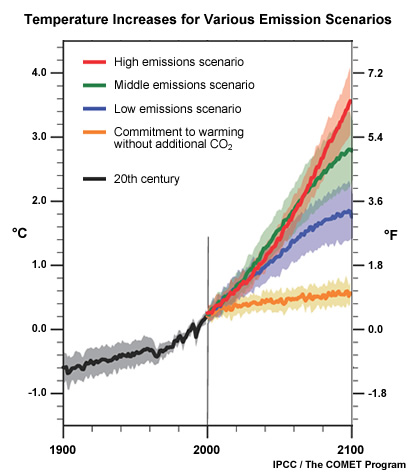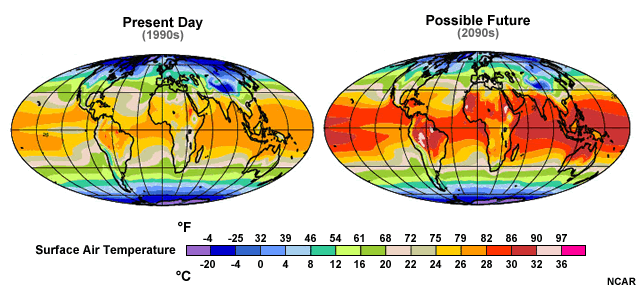Why It Matters

Climate Change 2007: The Physical Science Basis. Working Group I Contribution to the Fourth Assessment Report of the Intergovernmental Panel on Climate Change. Figure 10.8, Cambridge University Press.
Global average temperatures are expected to increase by about 2-13°F (1-7°C) by the end of the century. That may not sound like a lot, so what's the big deal? The problem is that small changes in global average temperature can lead to really large changes in the environment.
Only a few degrees have made the difference between ice ages, temperate periods, and a hothouse Earth with green poles. During the last ice age, global average temperatures were only 7-13°F (4-7°C) colder, but ice ploughed as far south as Illinois. About 125,000 years ago, average temperatures were only a degree or so warmer than today, but sea levels eventually rose as much as 20 feet (6 meters).

Small changes in the global average temperature also mean heat waves get hotter and droughts get drier. This happens thanks to small changes in the way air and water circulate around the globe. The resulting modifications to the environment can have large consequences for ecosystems. For instance, during the wetter and cooler climate of the last ice age, the Great Basin of California was filled by a great lake ringed with pine forests. When the climate became warmer and drier at the ice age's end, the lake dropped 500 feet and lost 90% of its surface area. The pine forests became sagebrush desert. Such changes in precipitation could be just as important, or even more important, than temperature increases for many parts of Earth.

Climate Change 2007: The Physical Science Basis. Working Group I Contribution to the Fourth Assessment Report of the Intergovernmental Panel on Climate Change. Figure 10.4, Cambridge University Press.
These kinds of effects are not temporary, either. The climate is like a large ship: once it starts turning, it is hard to stop. Whatever the new direction is, it will affect your children, your grandchildren, and many generations after.

What will a changing climate mean for us in the future? Scientists make the best assumptions they can using models to project what might happen. But we don't know for certain what will happen or when because we don't know what choices people will make about changing energy sources, limiting population growth, preserving forests, etc. Some impacts are more certain than others, some will occur sooner and others later, and some will affect developing nations more than wealthier ones.